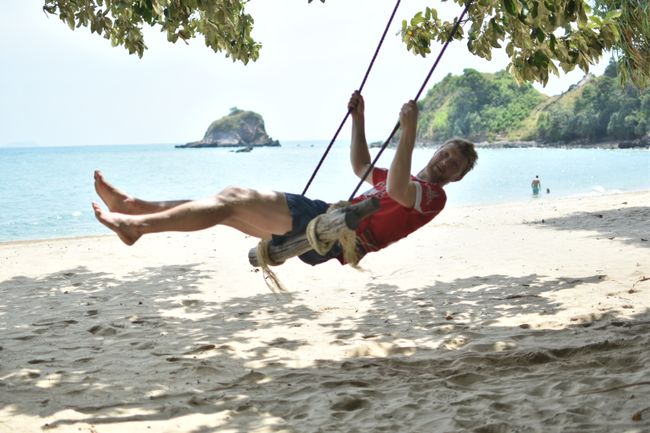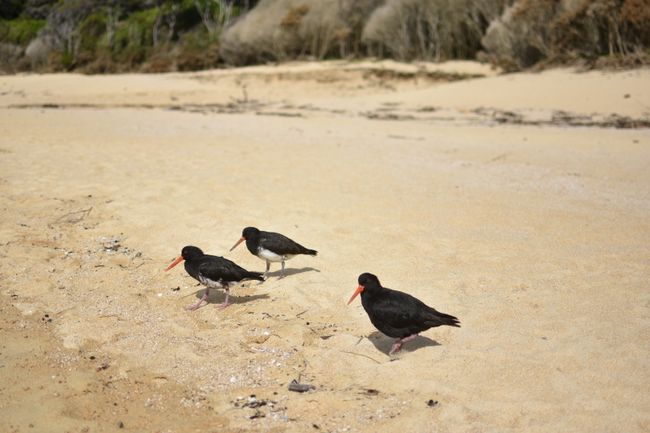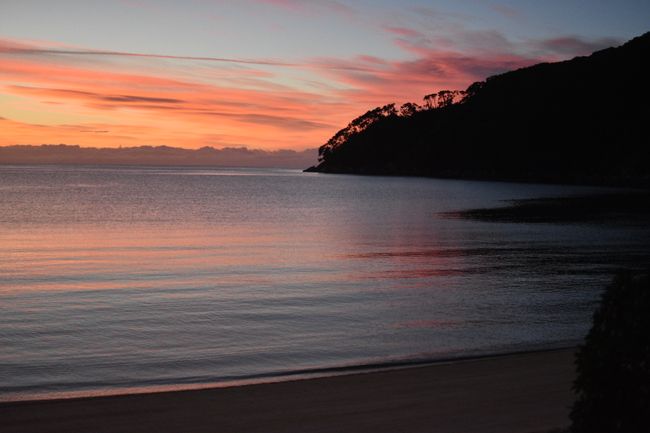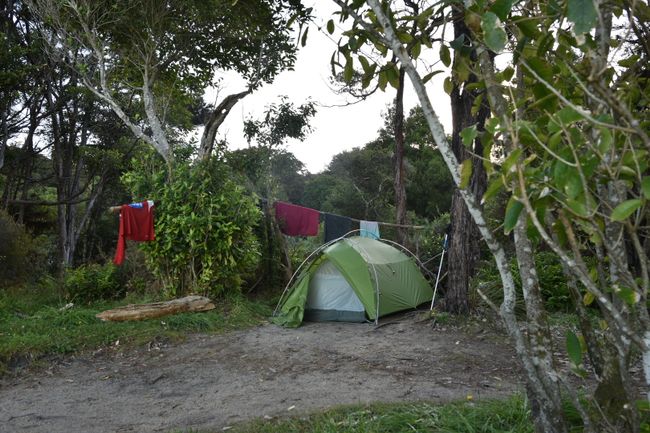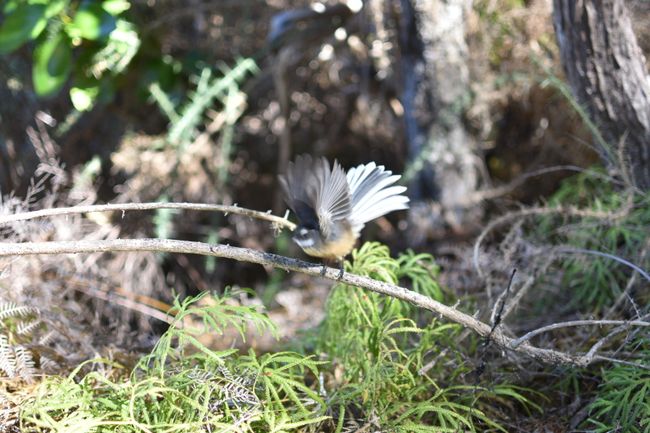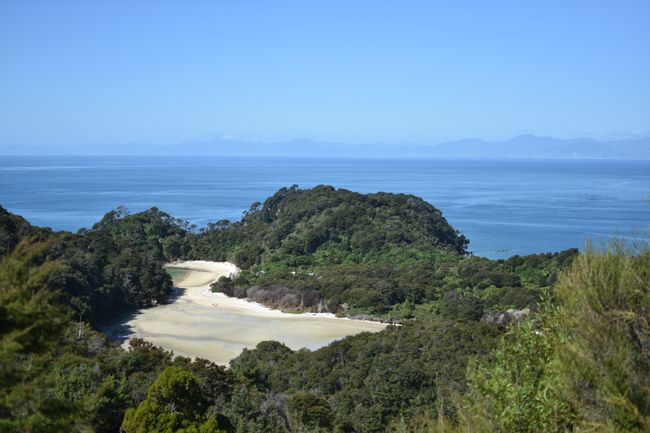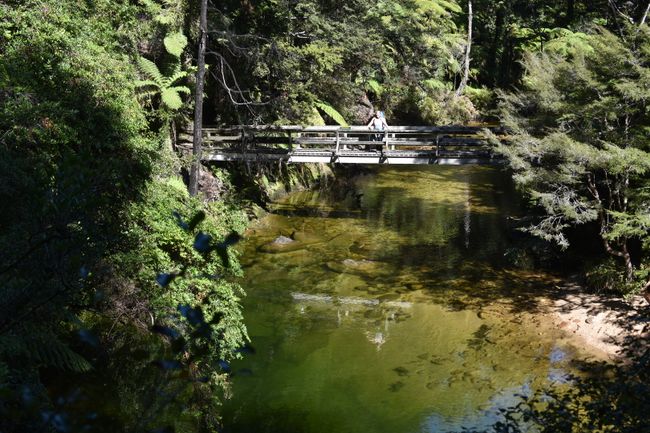13. New Zealand - Abel Tasman Track
Publicerad: 06.04.2018
Prenumerera på nyhetsbrev
We are back from 5 days of backpacking in Abel National Park. A Swiss person we met described the park as follows: a succession of bays competing for the title of the most beautiful beach in New Zealand.
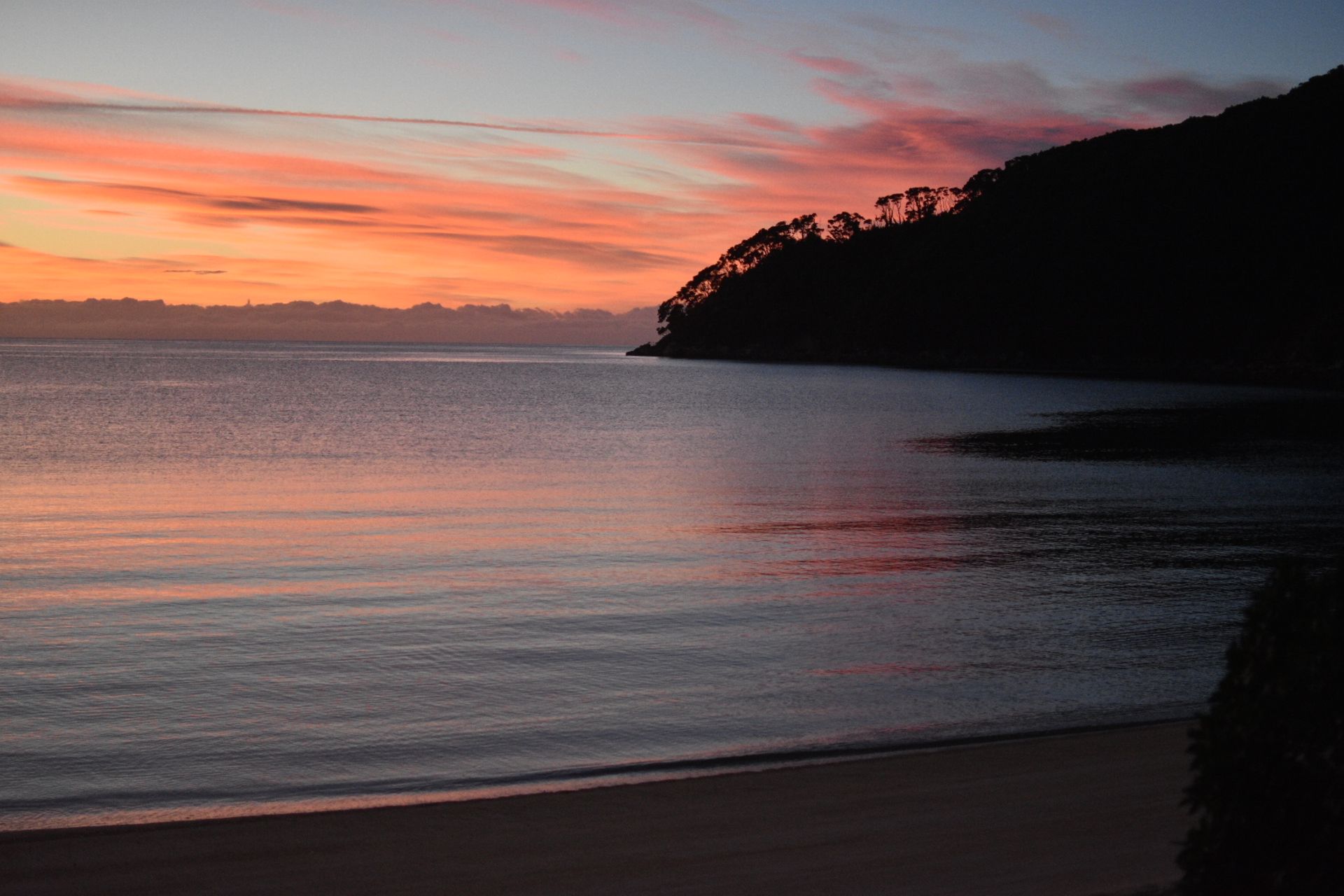
The Dutch sailor Tasman had other problems when he gave some of the bays such meaningful names as Murderer Bay or Cannibal Bay after his first encounters with the Maori inhabitants.
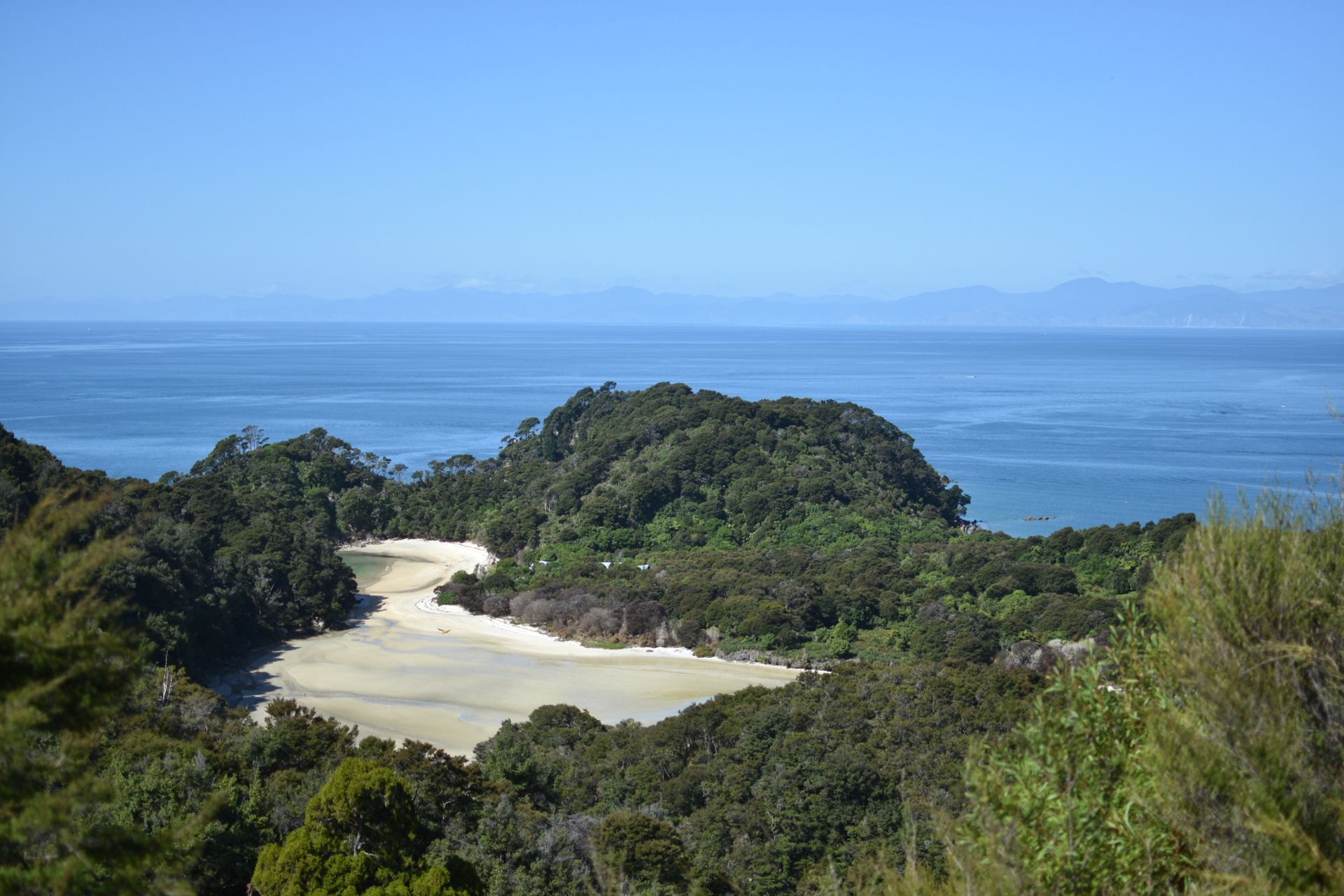
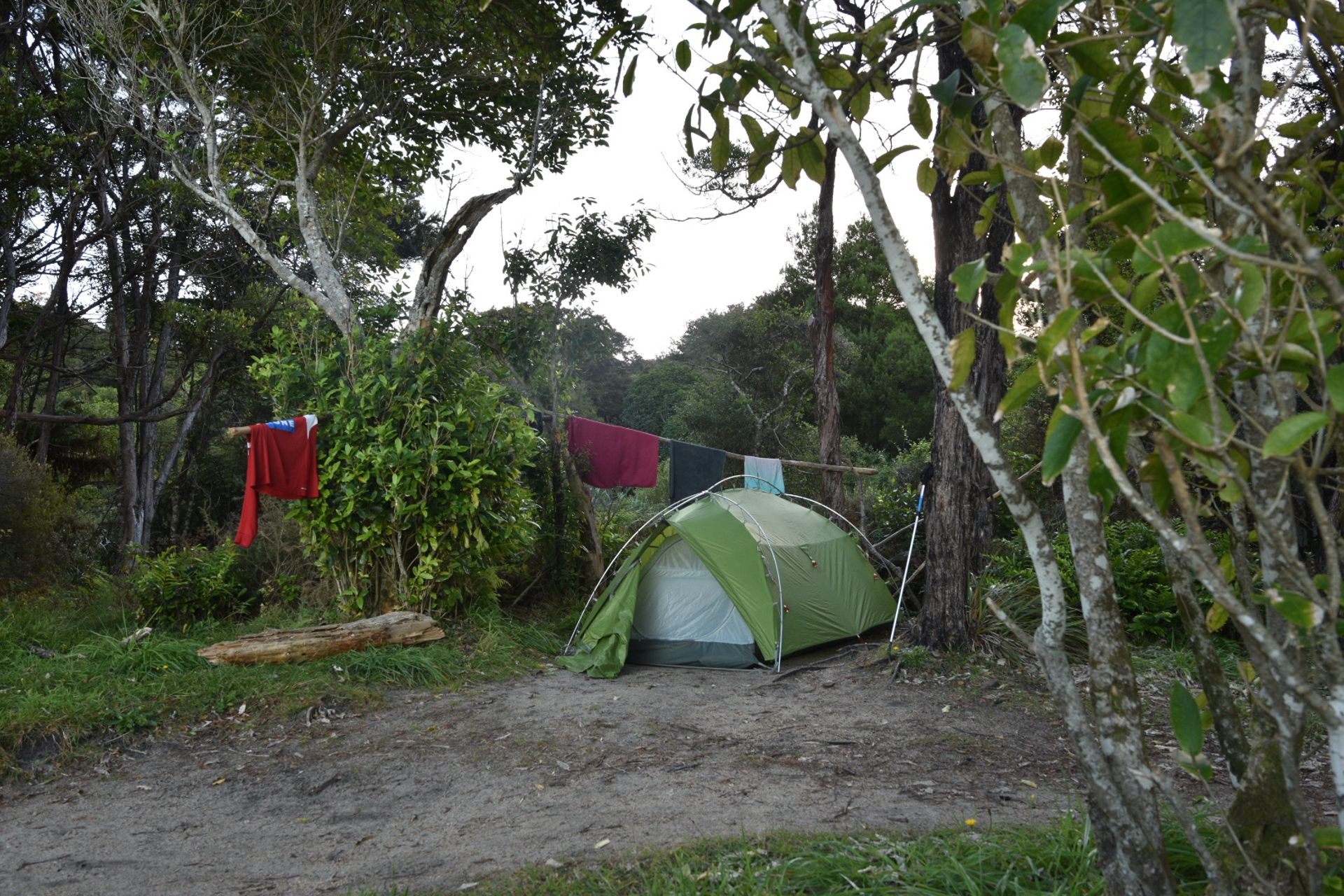
We had fantastic weather of around 22°C and mostly sunshine. While we were diving into turquoise water before and after the hikes, we strangely received pictures of snowshoe hares (it was Easter weekend) from Germany.
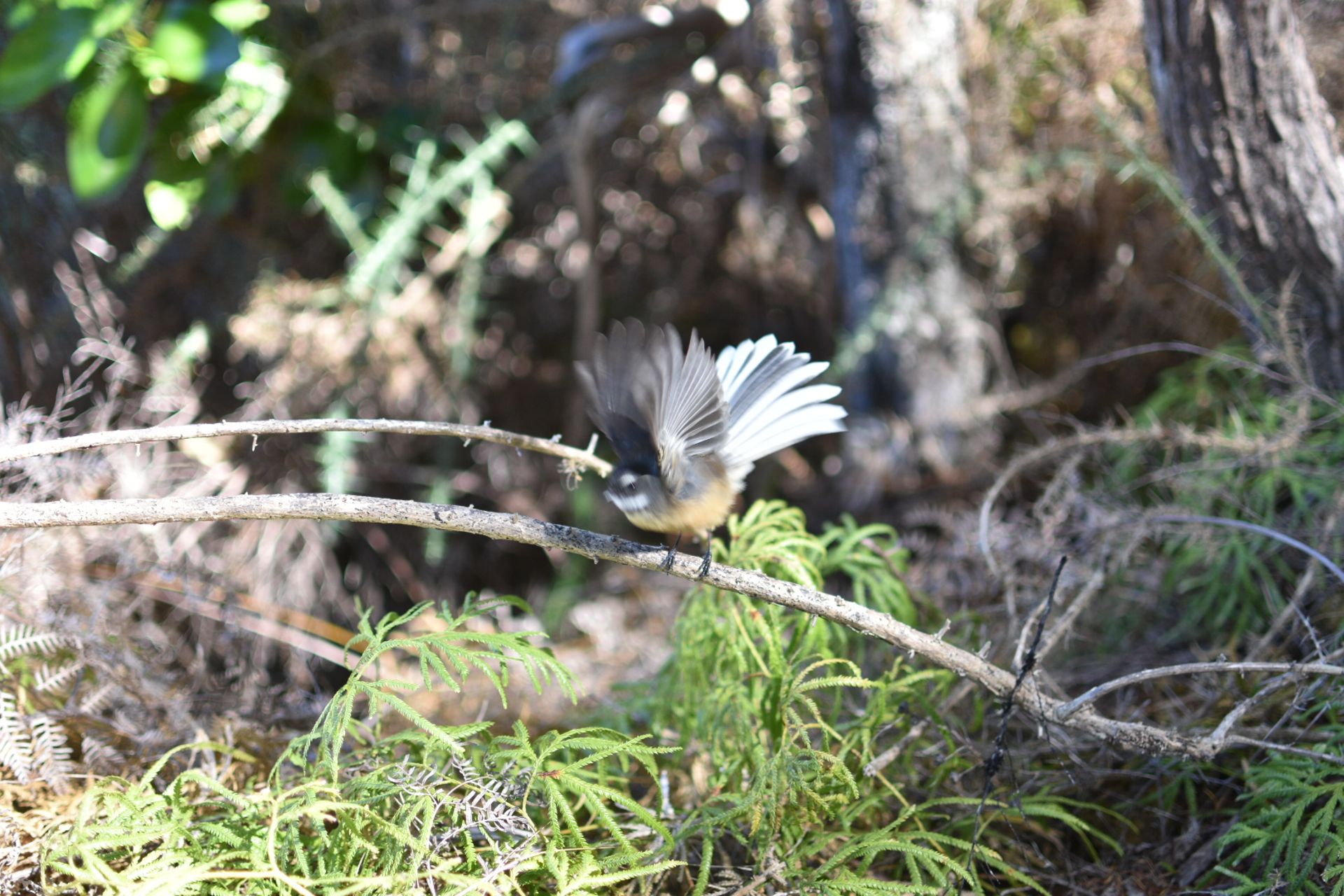
The campsites were all located directly at the water, and several times we could watch the sunrise directly from our tent. Of course, we were well protected against the sometimes annoying sandflies, the New Zealand equivalent of our mosquitoes, with mosquito repellent.
We spent a lot of time planning our meals, carrying around 3.5kg per person at the beginning. Surprisingly, curry pastes have proven to be delicious with a reasonable weight, enriched with 3 min noodles or my personal favorite, couscous. On the other hand, porridge did not enthuse us for breakfast. As far as breakfast is concerned, I am typically German, more of a bread person.
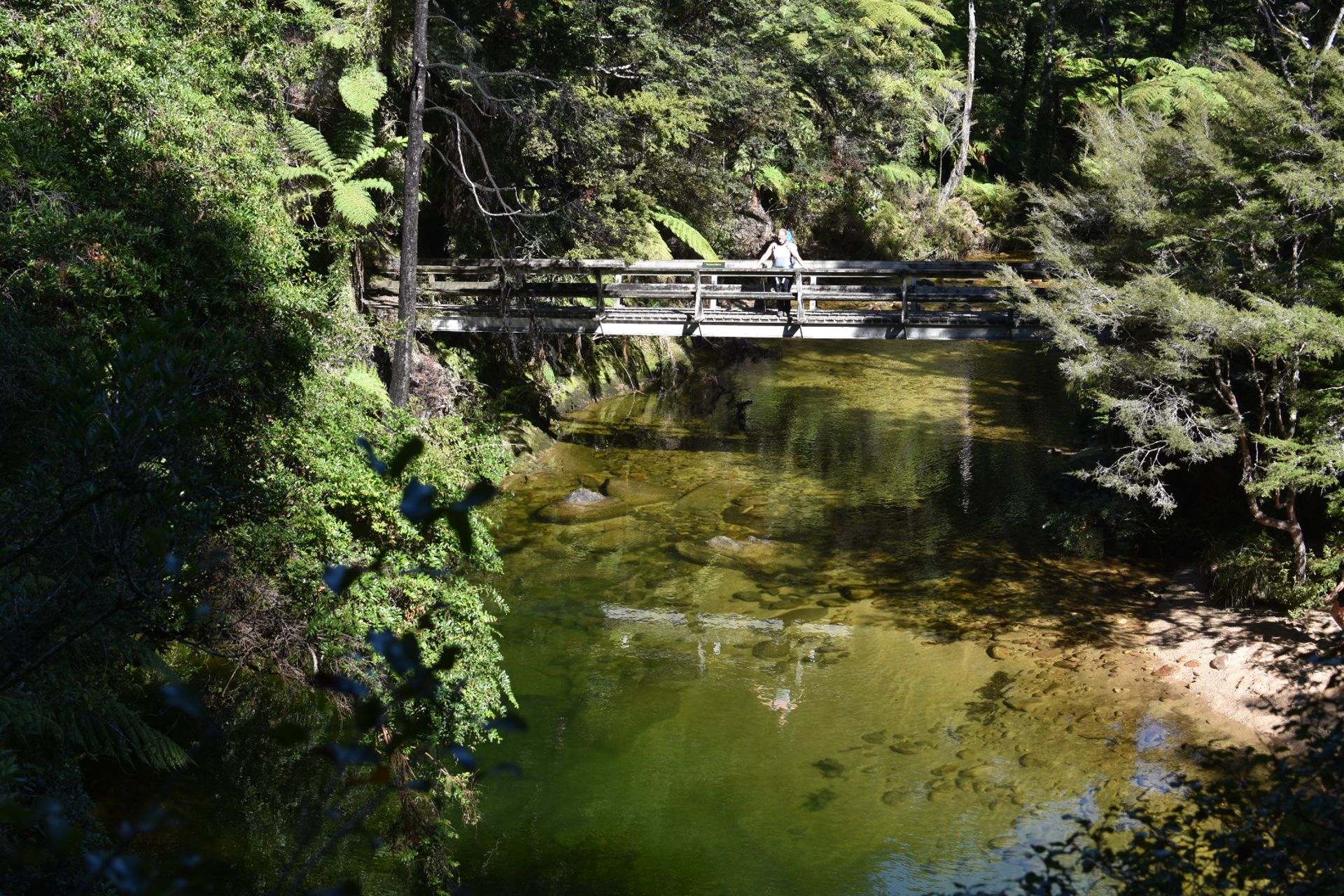
What I was not aware of before, but was frequently accompanied along the trails, is New Zealand's magnificent birdlife.
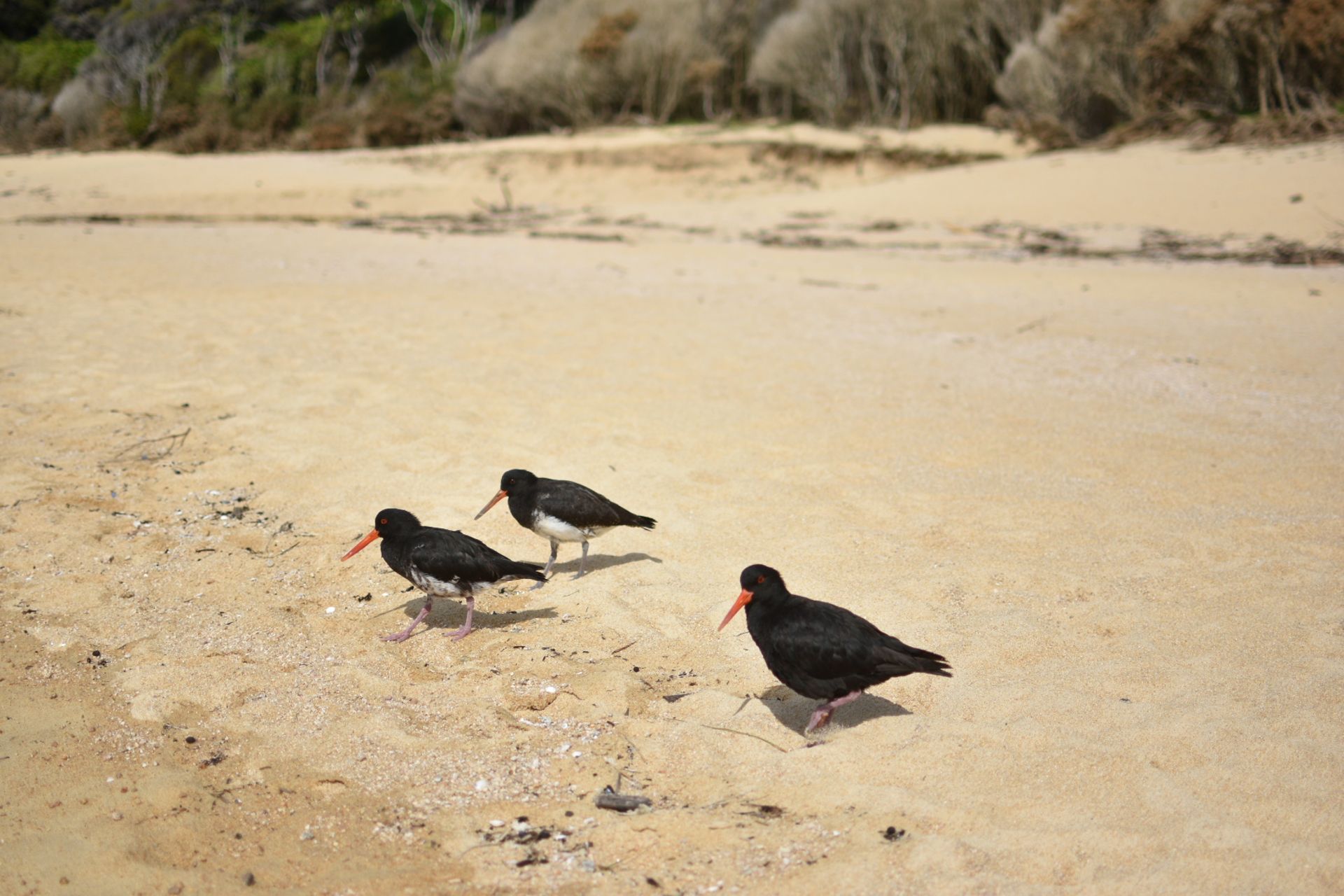
There are, for example, wekas, kleptomaniacal, chicken-like birds that carry away anything that is not hidden in the tent or backpack in just one unobserved moment. We have even had one in our car before.
The fantail looks like a sparrow, except for its disproportionately large fan-shaped tail, and performs amazing flight maneuvers in close proximity to hikers, as if it wants to show off its abilities.
Most birds are not shy at all and come very close, just a few meters away. For many of these birds, introduced rats and stoats are therefore a serious threat, which did not exist in New Zealand before humans arrived.
Prenumerera på nyhetsbrev
Svar

Reserapporter Nya Zeeland

